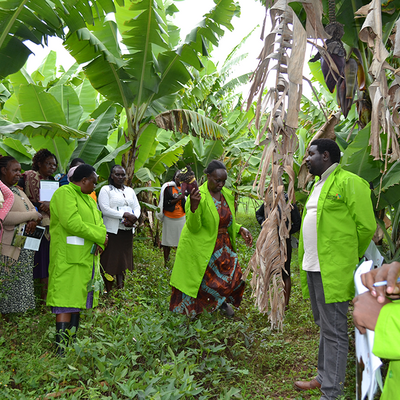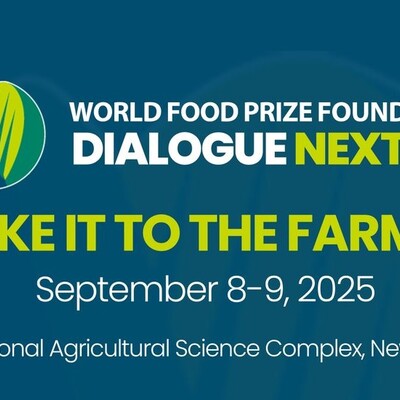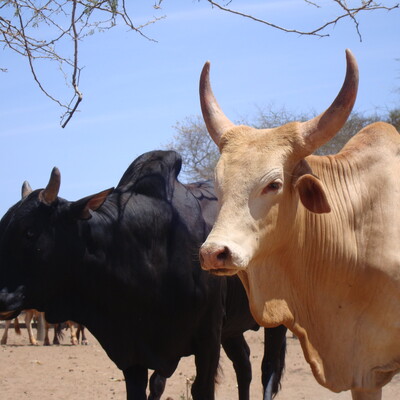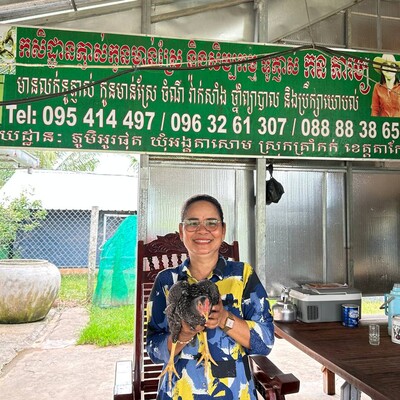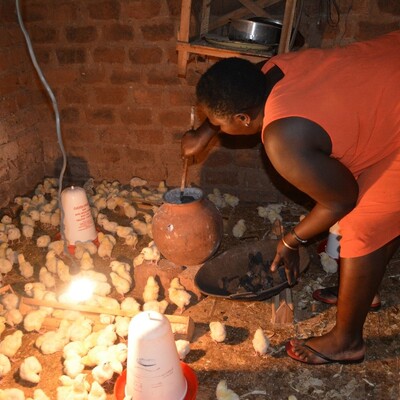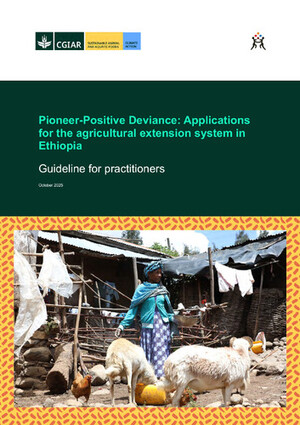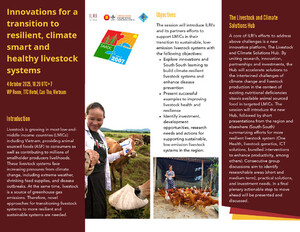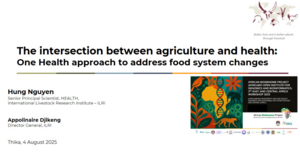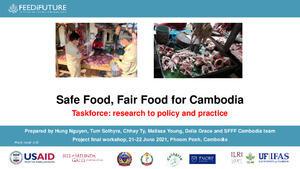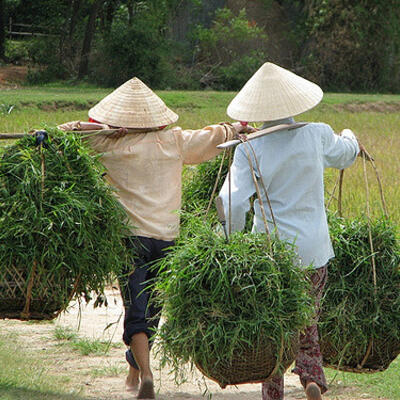
On this International Women’s Day 2020, ILRI commits to strengthening women’s rights in livestock systems and enterprises
This International Women’s Day (IWD) 2020, the International Livestock Research Institute (ILRI) is supporting a campaign run by a new GENDER platform of CGIAR, the world’s largest agricultural research and innovation partnership for a food-secure future.
Achieving gender equality is vital to achieving sustainable, productive and climate-resilient food systems, says Nicoline de Haan, the acting coordinator of the GENDER platform. GENDER—which stands for ‘Generating Evidence and New Directions for Equitable Results’—is aiming not only to help achieve greater gender parity in agricultural development but also to show how gender equality is a prerequisite to realizing the proposed ‘One CGIAR’ vision of ending world hunger by 2030.
This year’s theme for International Women’s Day and a year-long UN Women campaign is: ‘I Am Generation Equality: Realizing Women’s Rights’.
While gender-related research cuts across all of ILRI’s research, it is a core product line of ILRI’s Policies, Institutions and Livelihoods (PIL) Program, which aims to achieve ‘more gender-equitable control of livestock assets through gender-transformative approaches and gender-responsive technology and innovation’.
ILRI’s scientists undertake strategic research on the roles livestock systems can play in transforming gender relations and related social constructs. In this work, the researchers assess the barriers women livestock keepers in developing countries often face in accessing livestock technologies, services and markets and how these barriers limit women’s aspirations and livestock livelihoods as well as the contributions women make to household economies and well-being and to small-scale livestock systems and value chains more generally.
‘By developing livestock-based innovations appropriately tailored to women as well as men at the household, community and national levels, we aim to benefit the livestock sector as a whole’, says Isabelle Baltenweck, head of the PIL program. ‘We provide policymakers with evidence about how our livestock innovations can reduce the barriers women face in developing their livestock enterprises.’
As we move into the year of ‘I am generation equality: Realizing women’s rights’, ILRI’s gender team is pledging itself to support women’s rights in the livestock sector by making the livestock sector more gender equitable so that all in the sector can benefit. We hope you will join the ILRI gender team with ideas, solutions and opportunities. Please send these to Nicoline de Haan at n.dehaan [at] cgiar.org
In marking this day, we also have a few video clips of colleagues from across ILRI sharing their ‘aha moments’ when they realized the importance of gender equality for improving food, water, land, livestock and cropping systems.
Jimmy Smith: ILRI director general
Polly Ericksen: ILRI program leader, Sustainable Livestock Systems Program
Nicholas Svitek: ILRI senior scientist/cellular immunologist, Animal and Human Health Program
Henry Kiara: ILRI senior scientist, Animal and Human Health Program
Julie Ojango: ILRI senior scientist, Livestock Genetics Program
Julius Githinji: ILRI research associate, PIL Program
More videos can be accessed here.
Access more of the ‘aha moment’ narratives here.
Some recently published gender-related publications from ILRI
- Galiè, A., Teufel, N., Girard, A.W., Baltenweck, I., Domínguez-Salas, P., Price, M.J., Jones, R., Lukuyu, B., Korir, L., Raskind, I.G., Smith, K. and Yount, K.M. 2019. Women’s empowerment, food security and nutrition of pastoral communities in Tanzania. Global Food Security 23: 125–134
- Mulema, A.A., Jogo, W., Damtew, E., Mekonnen, K. and Thorne, P. 2019. Women farmers’ participation in the agricultural research process: Implications for agricultural sustainability in Ethiopia. International Journal of Agricultural Sustainability 17(2):127–145.
- Galiè, A., Teufel, N., Korir, L., Baltenweck, I., Girard, A.W., Domínguez-Salas, P. and Yount, K.M. 2019. The women’s empowerment in Livestock Index. Social Indicators Research 142(2):799–825.
- Waithanji, E., Mtimet, N. and Muindi, P. 2019. Contagious bovine pleuropneumonia vaccine delivery and adoption by women and men in North-Eastern Kenya. European Journal of Development Research 31(3): 364–387.
- Galiè, A. and Farnworth, C.R. 2019. Power through: A new concept in the empowerment discourse. Global Food Security 21: 13–17.
- Basu, P., Galiè, A. and Baltenweck, I. 2019. Presence and property: Gendered perspectives on participation in a dairy development program in Kenya and Uganda. Women’s Studies International Forum 74: 68–76.
- Bullock, R. and Tegbaru, A. 2019. Women’s agency in changing contexts: A case study of innovation processes in Western Kenya. Geoforum 105:78–88.
- Mutua, E., Haan, N. de, Tumusiime, D., Jost, C. and Bett, B. 2019. A qualitative study on gendered barriers to livestock vaccine uptake in Kenya and Uganda and their implications on Rift Valley fever control. Vaccines 7(3): 86.
- Eriksen, S.H., Cramer, L.K., Vetrhus, I. and Thornton, P. 2019. Can climate interventions open up space for transformation? Examining the case of climate-smart agriculture (CSA) in Uganda. Frontiers in Sustainable Food Systems 3:111
- Tavenner, K., Wijk, M.T. van., Fraval, S., Hammond, J., Baltenweck, I., Teufel, N., Kihoro, E., Haan, N. de., Etten, J. van, Steinke, J., Baines, D., Carpena, P., Skirrow, T., Rosenstock, T., Lamanna, C., Ng’endo, M., Chesterman, S., Namoi, N. and Manda, L. 2019. Intensifying inequality? Gendered trends in commercializing and diversifying smallholder farming systems in East Africa. Frontiers in Sustainable Food Systems 3:10
More ILRI gender publications can be accessed here.
See more on the CGIAR GENDER Platform Campaign site for IWD 2020 here.
International Women’s Day is a global event marked every year on 8 March to celebrate the social, economic, cultural and political achievements of women and to call for accelerating action for achieving gender equality.
Happy International Women’s Day 2020!







